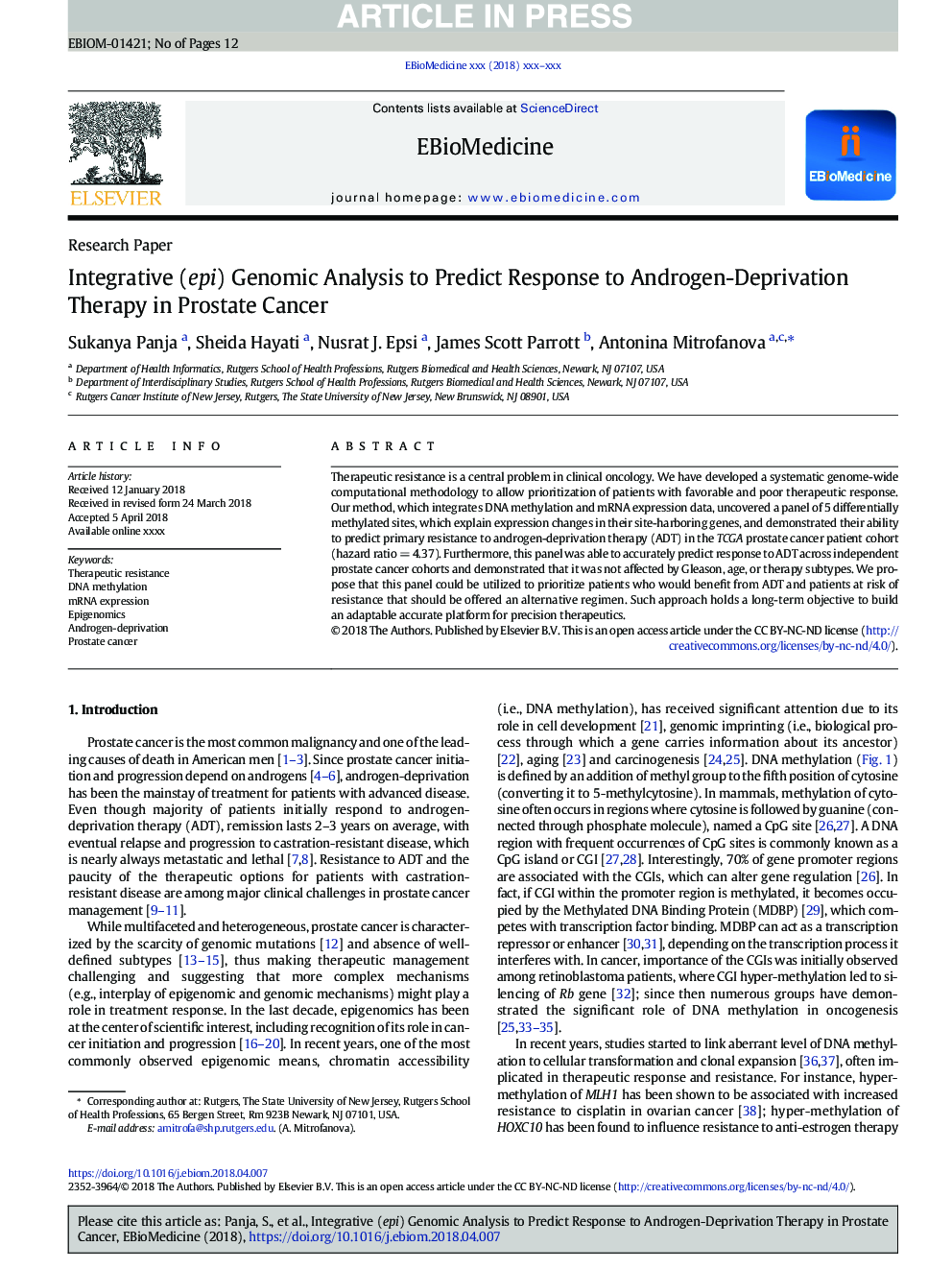| Article ID | Journal | Published Year | Pages | File Type |
|---|---|---|---|---|
| 8437260 | EBioMedicine | 2018 | 12 Pages |
Abstract
Therapeutic resistance is a central problem in clinical oncology. We have developed a systematic genome-wide computational methodology to allow prioritization of patients with favorable and poor therapeutic response. Our method, which integrates DNA methylation and mRNA expression data, uncovered a panel of 5 differentially methylated sites, which explain expression changes in their site-harboring genes, and demonstrated their ability to predict primary resistance to androgen-deprivation therapy (ADT) in the TCGA prostate cancer patient cohort (hazard ratioâ¯=â¯4.37). Furthermore, this panel was able to accurately predict response to ADT across independent prostate cancer cohorts and demonstrated that it was not affected by Gleason, age, or therapy subtypes. We propose that this panel could be utilized to prioritize patients who would benefit from ADT and patients at risk of resistance that should be offered an alternative regimen. Such approach holds a long-term objective to build an adaptable accurate platform for precision therapeutics.
Related Topics
Life Sciences
Biochemistry, Genetics and Molecular Biology
Cancer Research
Authors
Sukanya Panja, Sheida Hayati, Nusrat J. Epsi, James Scott Parrott, Antonina Mitrofanova,
